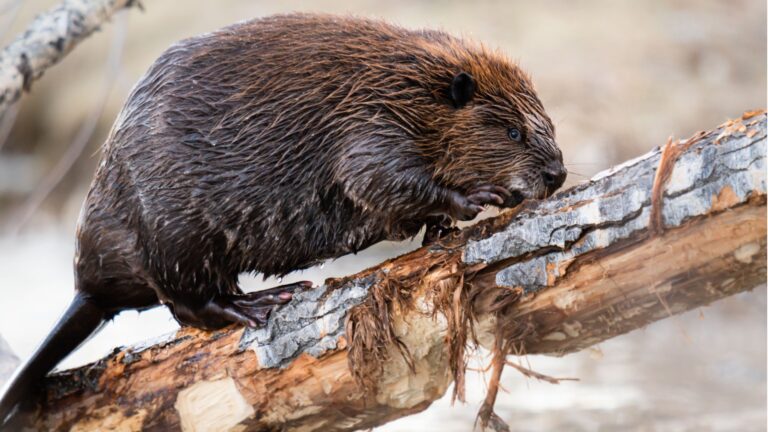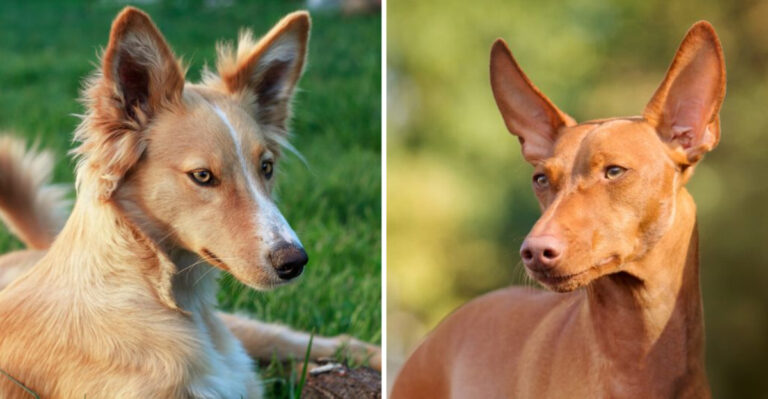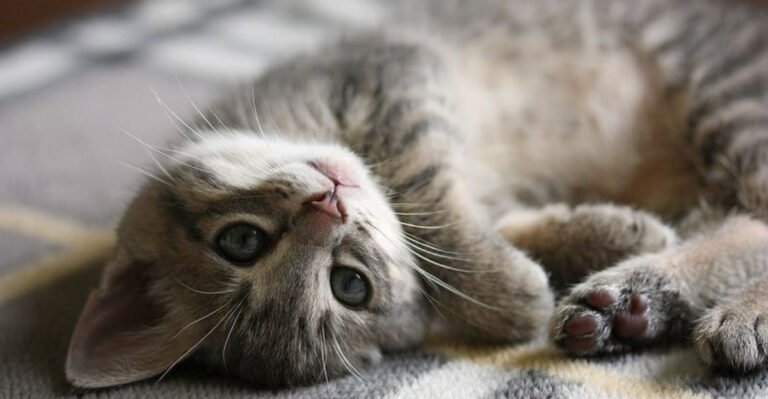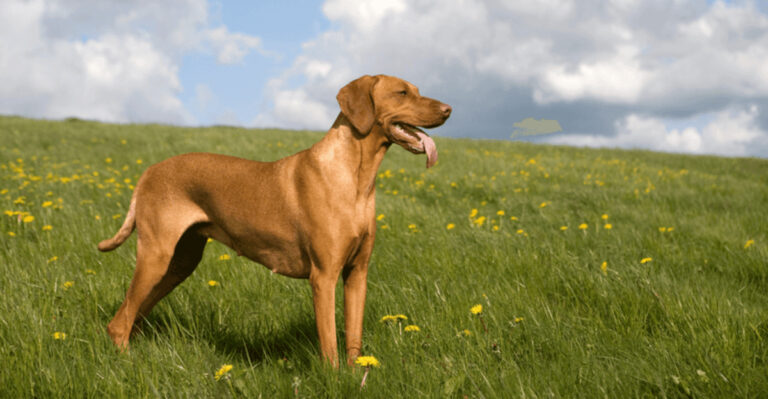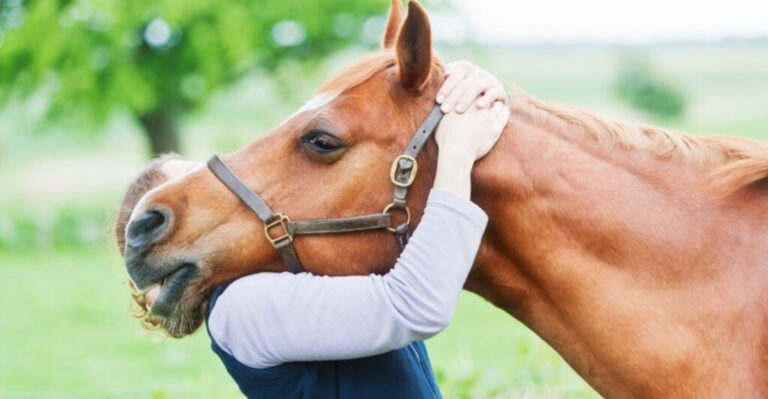What Smells Attract Bears To Your Yard? 9 Most Common Scents
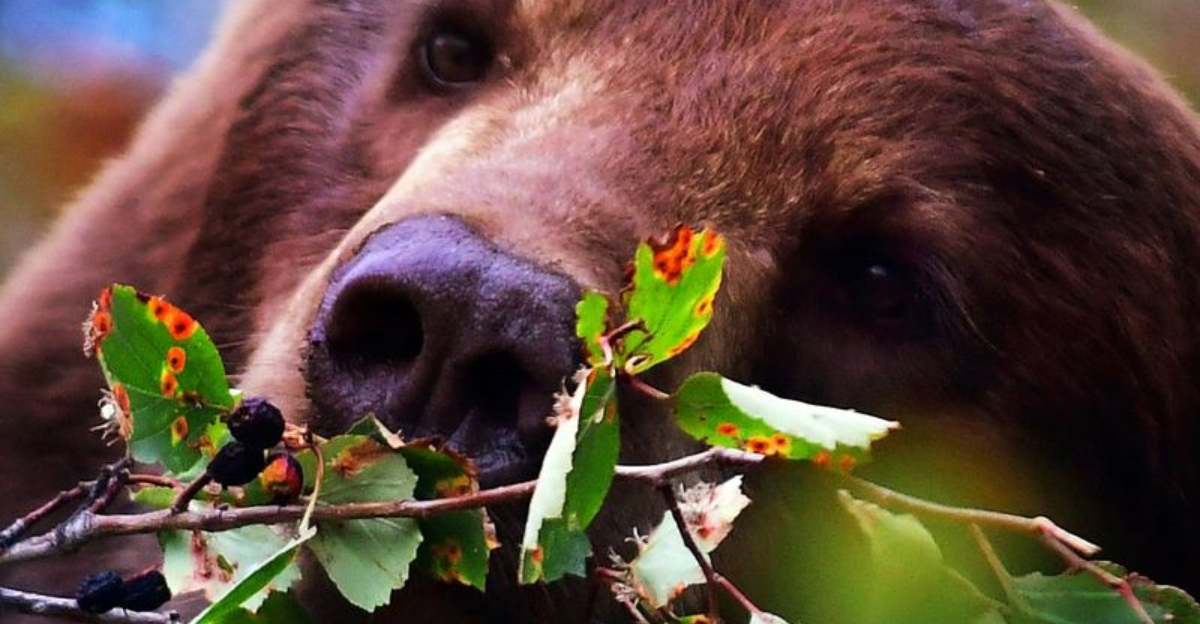
Bears have an extraordinary sense of smell, one of the strongest in the animal kingdom.
This keen olfactory ability leads them to food sources from great distances, sometimes even to our backyards.
1. Cleaning Products
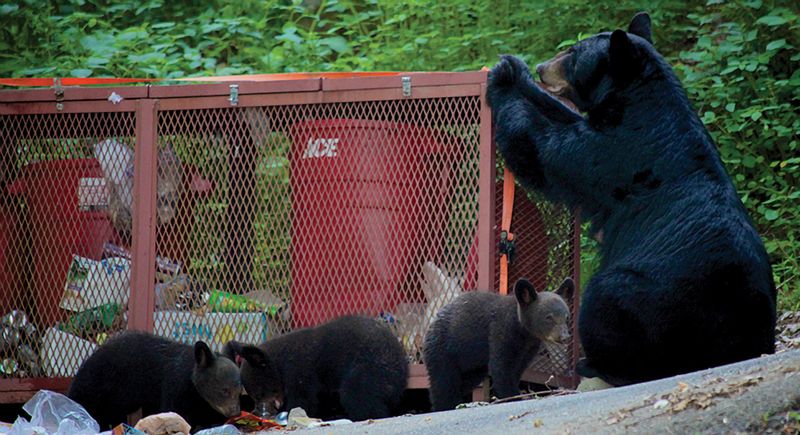
Imagine a bear dashing towards your lawn, not for a picnic, but because it mistook your cleaning spree for an all-you-can-sniff buffet.
Bears are surprisingly fond of strong-smelling cleaning products, especially those with fruity or floral aromas. These scents can become a bear’s siren call, luring them in for a closer inspection.
It’s best to store cleaning products securely, ensuring no enticing aroma wafts into the wild. This simple precaution can keep curious noses at bay.
2. Pet Food
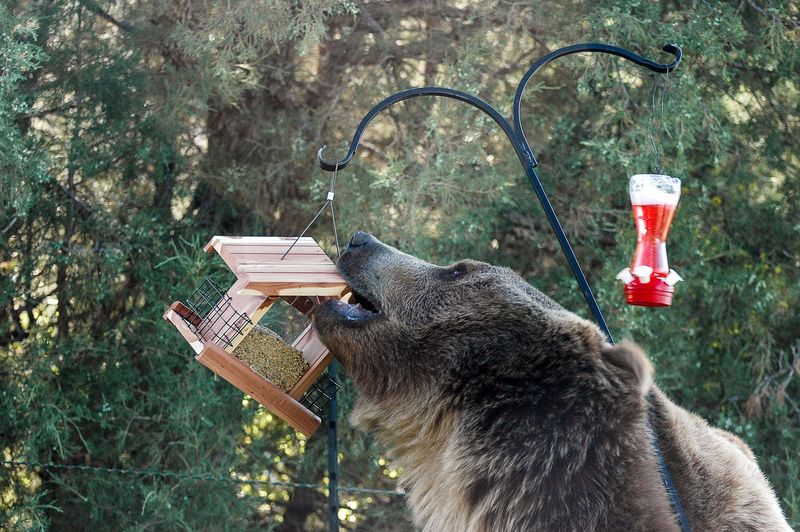
Leaving pet food outside might seem harmless, but to a bear, it’s like ringing the dinner bell. Bears can smell pet food from afar, drawing them in for a feast.
It’s not just the kibble they’re after; even crumbs can be irresistible. Bringing pet food inside after meals or feeding your pets indoors can help avoid unexpected bear guests.
Remember, every snack left outside is an open invitation to your furry neighbors.
3. Grills And Grease
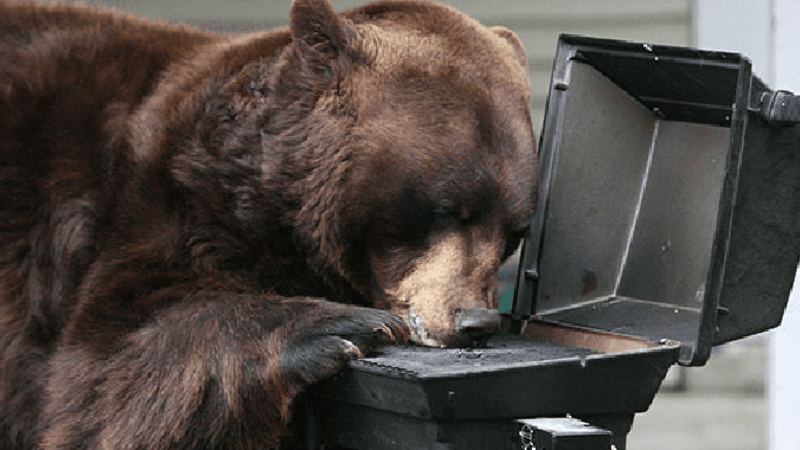
Grills are summer’s backyard heroes, but to bears, they’re the ultimate olfactory jackpot. The scent of leftover burgers and sizzling grease can travel far, calling out like a dinner gong to nearby bears.
Thoroughly cleaning grills and securing grease traps can reduce this risk. Consider it a post-barbecue ritual: scrubbing away not just grime, but potential bear appetites.
This practice can keep your grill sessions bear-free and blissful.
4. Fruits And Berries
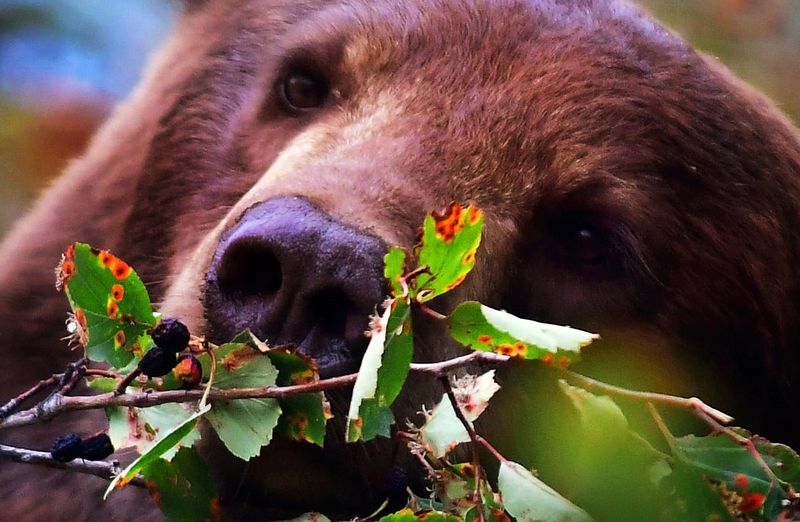
A yard graced with fruit trees or berry bushes is a sweet haven for bears. The aroma of ripe fruits and fallen berries is irresistible to them.
These natural snacks send aromatic signals that can bring bears from miles around. Regularly picking up fallen fruit and using electric fencing around orchards can be effective bear deterrents.
After all, prevention is the berry-best policy when it comes to keeping bears at bay.
5. Compost Piles
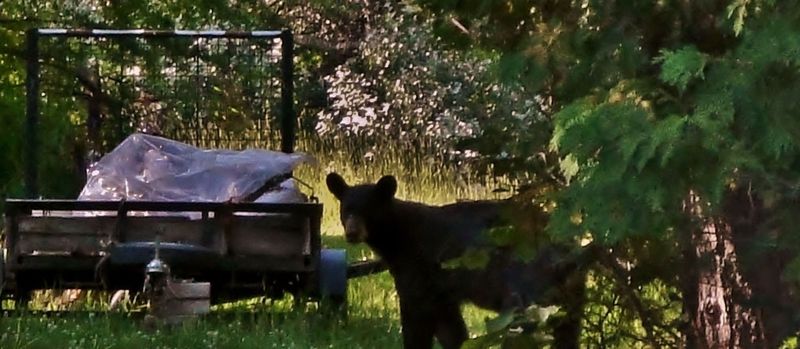
Your compost pile might be great for the planet, but it’s also a gourmet invitation for bears. The blend of decomposing fruits and veggies releases a strong aroma that bears find irresistible.
To avoid this, consider using bear-resistant compost bins or refrain from adding particularly smelly scraps.
Managing compost wisely can help you recycle effectively without attracting uninvited, hungry guests to your garden.
6. Bird Seed And Feeders
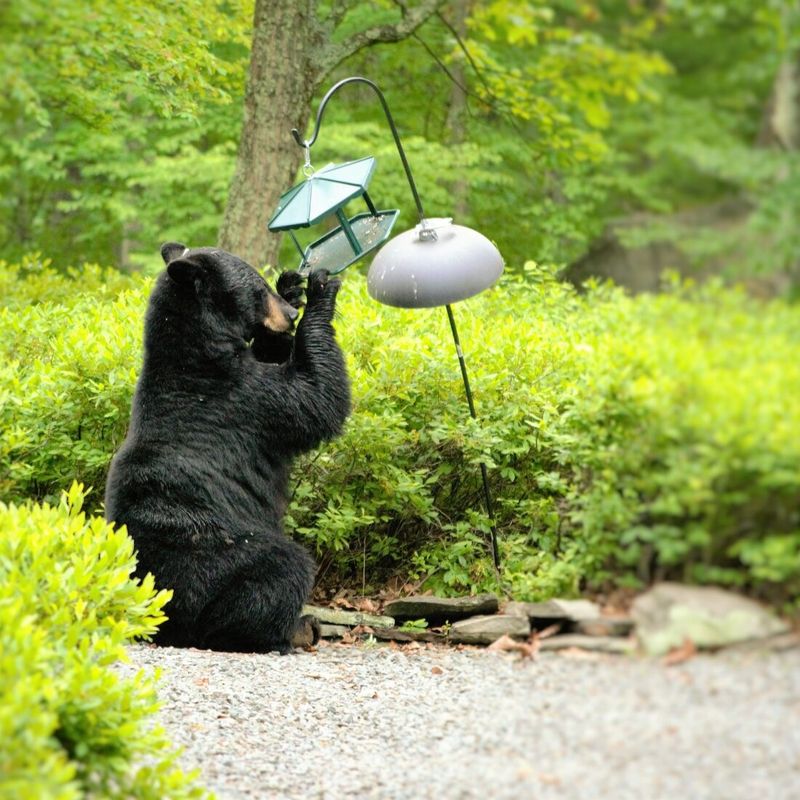
Birdwatching can take an unexpected turn when bears get involved. High-calorie bird seed and suet can lure bears into your yard, hoping for a free meal.
Position bird feeders out of reach and bring them in at night to deter these large, featherless “birdwatchers.”
By feeding birds responsibly, you maintain a safe, bear-free zone and enjoy your avian visitors without added surprise guests.
7. Scented Candles And Fragrances
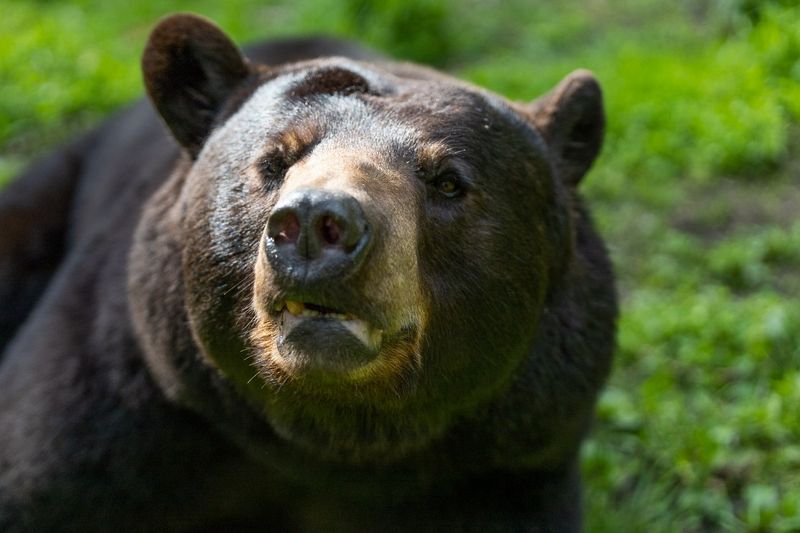
Aromatic candles might set the mood for humans, but they can also set the stage for bear encounters. Bears may be drawn to the scents of air fresheners or citronella candles, mistaking them for food sources.
Keeping such items indoors or in bear-proof containers can prevent your cozy ambiance from becoming a bear bash. This way, you can enjoy the glow without unexpected guests sniffing around.
8. Garbage And Food Scraps
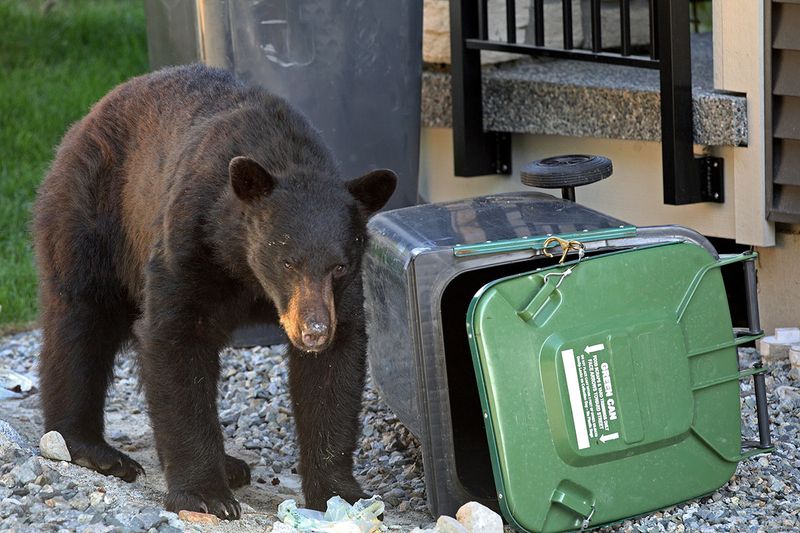
Trash bins can become treasure chests for bears. They can detect food odors from miles away, making garbage a major attractant.
Secure garbage in bear-resistant containers and avoid leaving food scraps exposed to minimize temptation.
Remember, what smells like trash to us may smell like a feast to a bear. Taking steps to manage waste responsibly can keep your home bear-free and your garbage intact.
9. Smoke From Fire Pits Or Bonfires
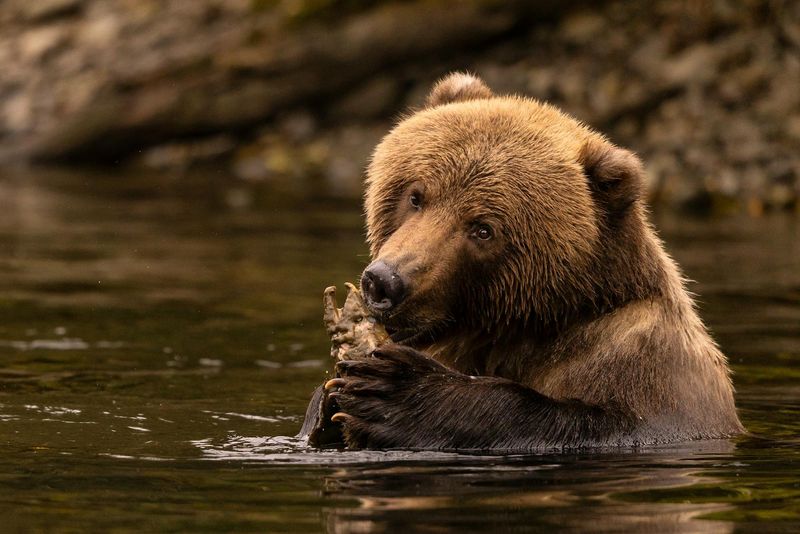
The cozy allure of a bonfire extends beyond human enjoyment to our ursine friends. The scent of burning wood and lingering food remnants can attract bears.
To lessen this attraction, ensure all food is cleaned up before nightfall and avoid burning food scraps.
This practice not only maintains the sanctity of your fire pit but also keeps it from becoming the neighborhood bear’s favorite hangout spot.

